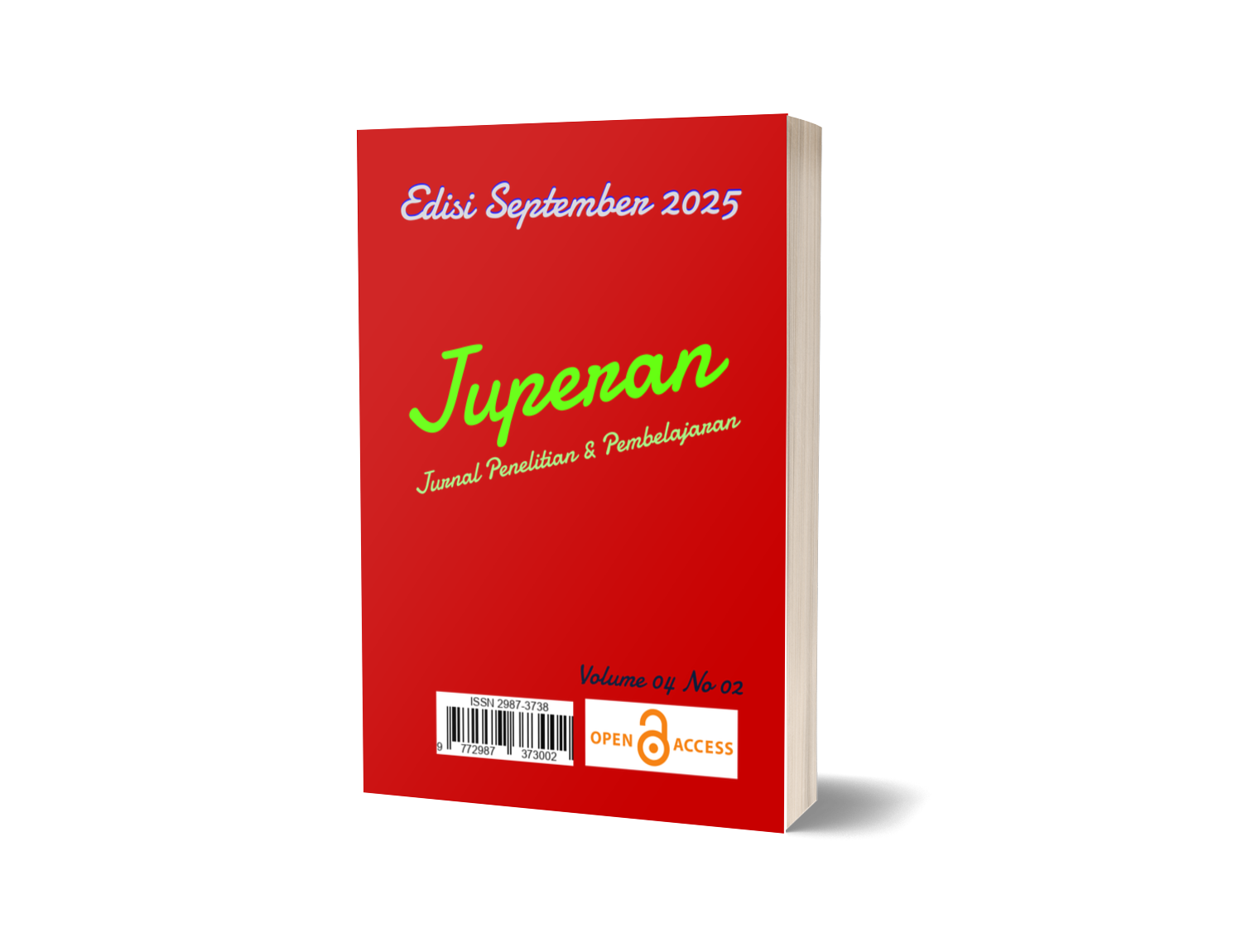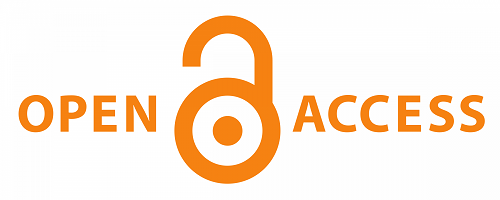Lecturer’s Strategies In Teaching Speaking Through Blended Learning And Its Impacts On Students’ English Speaking
DOI:
https://doi.org/10.70294/juperan.v4i02.1131Keywords:
Teaching Strategy, Speaking Ability, Blended LearningAbstract
This study is aimed at portraying lecturer’s strategies in teaching speaking to students at university and recognizing the impacts of strategies used by the English lecturer by involving an English lecturer and also students of university. In collecting the data, depth interview were conducted to identify the strategies of teaching speaking. Therefore, the inductive analysis was used to analyze the data of results interview. The result revealed that the strategies used by the lecturer to encourage the students to learning were: 1) giving interactive communication and time management, 2) assist the students with the internet connections’ problem, 3) prepare teaching plan and using appropriate technology, 4) conducting an innovative teaching models. The impacts of teaching speaking through Blended Learning motivate the students more active in learning, creating learner’s positive thinking and increasing the learner’s motivation.
Downloads
References
Aida. M. Bakeer. (2023). Impact of Implementing Blended Learning on EFL Students’ Attitudes in HEIs in Palestine: Lessons learned from TEFL-ePAL project. Journal of Palestine Ahliya University for Research and Studies, 2(3), 26–42. https://doi.org/10.59994/pau.2023.3.26
Asmawi, A., Dong, H., Zhang, X., & Sun, L. (2024, January 30). Exploring the transformative power of blended learning for Business English majors in China (2012–2022) – A bibliometric voyage. Heliyon. Elsevier Ltd. https://doi.org/10.1016/j.heliyon.2024.e24276
Creswell, J. W. (2020). Penelitian Kualitatif & Desain Riset : Memilih di Antara Lima Pendekatan. ( saifuddin Z. Qudsy, Ed.), Mycological Research. PUSTAKA PELAJAR.
Dinh, T. T. L., Tran, X. T., Le, T. H. T., & Pham, H. T. U. (2024). The Implementation of Blended Learning for English Courses at Higher Education in Vietnam: Teachers’ Perceptions. AsiaCALL Online Journal, 15(1), 1–18. https://doi.org/10.54855/acoj.241511
Eriska Neti Lumintasari, Khani Fatul Istianah, M. Khaerul Anwar, Arby Mukhit, & Zulfa Fadlullah Istiqlal. (2022). Online Application in Blended Learning; EFL Students’ Perspective. Conference on English Language Teaching, 2, 301–314. https://doi.org/10.24090/celti.v2.58
Gayatri, P., Chen, S., & Sit, H. (2022). A Review on Blended Learning for English Language Teaching in Indonesian Higher Education (pp. 253–277). https://doi.org/10.1007/978-981-16-8329-9_14
Hakim, M. A. R., Serasi, R., Revola, Y., Adnan, N. I., & Astari, A. R. N. (2023). The Reconstruction of Blended Learning Teaching Model for Full Online Learning System: A Study on English Education Department in Islamic Universities in Indonesia. International Journal of Learning, Teaching and Educational Research, 22(4), 1–20. https://doi.org/10.26803/IJLTER.22.4.1
Haryanto, H., Purwanto, P., & Giyoto, G. (2021). Learning English for Specific Purposes through Blended Learning at Public Islamic University (A Case Study at Private University Jepara Indonesia). Technium Social Sciences Journal, 26, 351–358. https://doi.org/10.47577/tssj.v26i1.5319
Inga, E., Inga, J., Cárdenas, J., & Cárdenas, J. (2021). Planning and strategic management of higher education considering the vision of latin america. Education Sciences, 11(4). https://doi.org/10.3390/educsci11040188
Ishtiaq, M. (2019). Book Review Creswell, J. W. (2014). Research Design: Qualitative, Quantitative and Mixed Methods Approaches (4th ed.). Thousand Oaks, CA: Sage. English Language Teaching, 12(5), 40. https://doi.org/10.5539/elt.v12n5p40
Liu, C., Rathakrishnan, M., & Wang, W. (2024). Blended Learning Strategies for English for Specific Purposes (ESP): A Systematic Review. Educational Administration: Theory and Practice, 30(1), 298–315. https://doi.org/10.52152/kuey.v30i1.1063
Mirhosseini, S. A. (2017). Introduction: Qualitative Research in Language and Literacy Education. In Educational Linguistics (Vol. 29, pp. 1–13). Springer Science+Business Media B.V. https://doi.org/10.1007/978-3-319-49140-0_1
Nassar, Y. H., Al-Motrif, A., Abuzahra, S., Aburezeq, I. M., Dweikat, F. F., Mohammad, G., … Gimeno, A. R. (2023). The Impacts of Blended Learning on English Education in Higher Education. World Journal of English Language, 13(6), 449–459. https://doi.org/10.5430/wjel.v13n6p449
Nida, K., Ruhiat, Y., & Rusdiyani, I. (2023). The Influence of Blended Learning and Visual, Auditory, Kinesthetic (VAK) Learning Styles on Students’ Speaking Skills in Class XI English Language Learning. Edcomtech: Jurnal Kajian Teknologi Pendidikan, 8(2), 113. https://doi.org/10.17977/https://doi.org/10.17977/um039v8i22023p113
Peng, N., & Chen, X. (2023). Model-based learning towards environment in cross-cultural communication: a mediating role of technology innovation acceptance in culture congruence and English language teaching for environmental education. Economic Research-Ekonomska Istrazivanja , 36(3). https://doi.org/10.1080/1331677X.2022.2162946
Riel, J., Lawless, K. A., & Brown, S. W. (2016). Listening to the teachers: Using weekly online teacher logs for ROPD to identify teachers’ persistent challenges when implementing a blended learning curriculum. Journal of Online Learning Research, 2(2), 169–200.
Yajie, C., & Jumaat, N. F. B. (2023, February 1). Blended Learning Design of English Language Course in Higher Education: A Systematic Review. International Journal of Information and Education Technology. International Journal of Information and Education Technology. https://doi.org/10.18178/ijiet.2023.13.2.1815
Yang, C., Xu, D., & Yin, S. (2022). Construction of moral education in college English with blended learning in the “internet+era.” SHS Web of Conferences, 140, 01036. https://doi.org/10.1051/shsconf/202214001036
Zou, C., Li, P., & Jin, L. (2021). Online college English education in Wuhan against the COVID-19 pandemic: Student and teacher readiness, challenges and implications. PLoS ONE, 16(10 October). https://doi.org/10.1371/journal.pone.0258137










